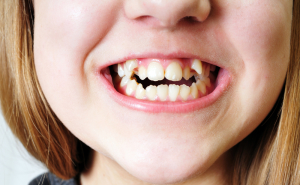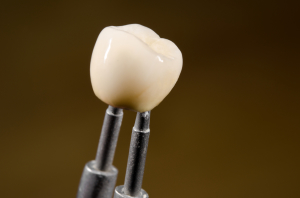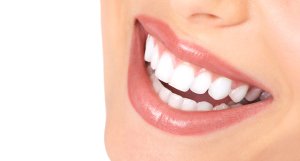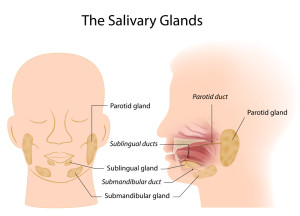 Is your mouth inflamed? Is it sore? If so, you may have stomatitis. Stomatitis is the term used for a sore or inflamed mouth. Any sore in your mouth can be uncomfortable and can make speaking, eating, drinking, and even sleeping difficult. You can develop sores anywhere on your lips, tongue, or in your mouth. You can even get sores on the top of your mouth, or your hard palate. There are different types of stomatitis. Some are contagious and some are not. The FAQs about mouth irritations may help make yours short lived.
Is your mouth inflamed? Is it sore? If so, you may have stomatitis. Stomatitis is the term used for a sore or inflamed mouth. Any sore in your mouth can be uncomfortable and can make speaking, eating, drinking, and even sleeping difficult. You can develop sores anywhere on your lips, tongue, or in your mouth. You can even get sores on the top of your mouth, or your hard palate. There are different types of stomatitis. Some are contagious and some are not. The FAQs about mouth irritations may help make yours short lived.
(more…)
Are You A Gum Chewer?
 Do you chew gum? Most people have probably chewed gum at least one time in their lives. Some people don’t enjoy chewing gum, others do. Some chew only as a last resort to freshen their breath. Gum chewing has had mixed reviews. Some say gum chewing is bad no matter what. Others say gum chewing is okay depending on what gum you chew. What is your opinion about chewing gum? Are you a naysayer? Take our true or false quiz below to determine whether or not chewing gum is okay.
Do you chew gum? Most people have probably chewed gum at least one time in their lives. Some people don’t enjoy chewing gum, others do. Some chew only as a last resort to freshen their breath. Gum chewing has had mixed reviews. Some say gum chewing is bad no matter what. Others say gum chewing is okay depending on what gum you chew. What is your opinion about chewing gum? Are you a naysayer? Take our true or false quiz below to determine whether or not chewing gum is okay.
(more…)
Tooth-Friendly Foods For The Holidays
 You all know that the holidays can be tough on your waistline. There is so much food and so many goodies, from candy, to cake, to pie, hot chocolate, wine, and on and on. But your waistline is not the only thing that suffers. Be aware of your dental health. Most of those goodies listed above are not good for your teeth. Read on as we discuss tooth-friendly foods you can eat during the holidays.
You all know that the holidays can be tough on your waistline. There is so much food and so many goodies, from candy, to cake, to pie, hot chocolate, wine, and on and on. But your waistline is not the only thing that suffers. Be aware of your dental health. Most of those goodies listed above are not good for your teeth. Read on as we discuss tooth-friendly foods you can eat during the holidays.
(more…)
Foods To Avoid During The Holidays
 Admit it or not, the Christmas holidays are a time of indulgence. We indulge ourselves with food and drinks, and we indulge our children with gifts. That’s okay. Christmas only comes once a year right? However, overindulgence may not be good for your tooth health. So if you’re wondering if there are certain foods you should avoid during the holidays to avoid dental problems, there actually are. And if you don’t want to avoid them all together, there are certain ways you can eat them to reduce negative effects on your teeth. Read on to find out what foods to avoid during the holidays.
Admit it or not, the Christmas holidays are a time of indulgence. We indulge ourselves with food and drinks, and we indulge our children with gifts. That’s okay. Christmas only comes once a year right? However, overindulgence may not be good for your tooth health. So if you’re wondering if there are certain foods you should avoid during the holidays to avoid dental problems, there actually are. And if you don’t want to avoid them all together, there are certain ways you can eat them to reduce negative effects on your teeth. Read on to find out what foods to avoid during the holidays.
(more…)
The Mystery Of Crooked Teeth
 Have you ever wondered why you needed braces but your brother and sisters didn’t? You might think that if you had crooked teeth so would your whole family. There are several reasons someone might have crooked teeth, and heredity is only one of them. Regardless of why your teeth are crooked, having crooked teeth can be embarrassing. Crooked teeth can contribute to low self-esteem, more tooth decay, and other oral and psychological problems. In today’s blog we crack the mystery of crooked teeth.
Have you ever wondered why you needed braces but your brother and sisters didn’t? You might think that if you had crooked teeth so would your whole family. There are several reasons someone might have crooked teeth, and heredity is only one of them. Regardless of why your teeth are crooked, having crooked teeth can be embarrassing. Crooked teeth can contribute to low self-esteem, more tooth decay, and other oral and psychological problems. In today’s blog we crack the mystery of crooked teeth.
(more…)
One Visit Crowns
 Did you ever think you could go to the dentist and walk away with a dental crown the same day? There was a time it would take weeks and several visits, but no more. Today’s dental technology makes things easier, faster, and less uncomfortable for patients. Your Sheridan, Wyoming dentists offer CEREC one-visit crowns. Durable and long-lasting, yet a fast and easy option for restoring damaged teeth, read on to find out more about one visit crowns.
Did you ever think you could go to the dentist and walk away with a dental crown the same day? There was a time it would take weeks and several visits, but no more. Today’s dental technology makes things easier, faster, and less uncomfortable for patients. Your Sheridan, Wyoming dentists offer CEREC one-visit crowns. Durable and long-lasting, yet a fast and easy option for restoring damaged teeth, read on to find out more about one visit crowns.
(more…)
Invisalign: True-Or-False Quiz
 Do you tire of looking at the beautiful, uniform smiles around you while you hide your own smile? Your smile can light up a room and make you feel wonderful about your appearance. Or, it can cause you to shy away from certain situations like social events. If part of your concern in seeking out cosmetic orthodontic care is the idea of a mouthful of metal, give Invisalign treatment a chance. Learn more with the following quiz to determine whether this treatment may offer you the solution you need.
Do you tire of looking at the beautiful, uniform smiles around you while you hide your own smile? Your smile can light up a room and make you feel wonderful about your appearance. Or, it can cause you to shy away from certain situations like social events. If part of your concern in seeking out cosmetic orthodontic care is the idea of a mouthful of metal, give Invisalign treatment a chance. Learn more with the following quiz to determine whether this treatment may offer you the solution you need.
(more…)
The Relationship Between Healthy Teeth and Digestion
 The process of digesting your food begins the moment food hits your mouth. As a whole, the digestive system transports and processes food to facilitate the absorption of key vitamins and minerals by your body. Your teeth play an important role in this process. Keeping your teeth healthy benefits your entire body and its ability to digest food, explain the dentists at Grinnell Street Dentistry. If your teeth cannot perform their most basic duties, it may be time to ask your dentist about fillings or dental crowns in Sheridan, WY.
The process of digesting your food begins the moment food hits your mouth. As a whole, the digestive system transports and processes food to facilitate the absorption of key vitamins and minerals by your body. Your teeth play an important role in this process. Keeping your teeth healthy benefits your entire body and its ability to digest food, explain the dentists at Grinnell Street Dentistry. If your teeth cannot perform their most basic duties, it may be time to ask your dentist about fillings or dental crowns in Sheridan, WY.
(more…)
The Crazy World of Craze Lines
 Are you familiar with a dental condition called craze lines? They can literally drive patients crazy when small fractures in tooth enamel develop and become stained. When craze lines develop on the front teeth they can create the appearance of vertical lines that will likely be visible to others when you talk and smile. Many people find this affects their smile confidence negatively. Smiles are essential to your quality of life. We (more…)
Are you familiar with a dental condition called craze lines? They can literally drive patients crazy when small fractures in tooth enamel develop and become stained. When craze lines develop on the front teeth they can create the appearance of vertical lines that will likely be visible to others when you talk and smile. Many people find this affects their smile confidence negatively. Smiles are essential to your quality of life. We (more…)
The Importance of Saliva
 There are many things about your body that you take for granted and don’t question. Some things are easy to overlook like the importance of saliva. How many people think about their saliva? Why would they? Throughout your daily life there seem many more important things to deal with than your saliva. There is no reason to question why it is there or what it does as long as there are no problems right? In today’s blog, your Sheridan dentists, Dr. Cody Coon, Dr. Justin Coon, and Dr. Donald Coon, explain the importance of saliva.
There are many things about your body that you take for granted and don’t question. Some things are easy to overlook like the importance of saliva. How many people think about their saliva? Why would they? Throughout your daily life there seem many more important things to deal with than your saliva. There is no reason to question why it is there or what it does as long as there are no problems right? In today’s blog, your Sheridan dentists, Dr. Cody Coon, Dr. Justin Coon, and Dr. Donald Coon, explain the importance of saliva.
(more…)







